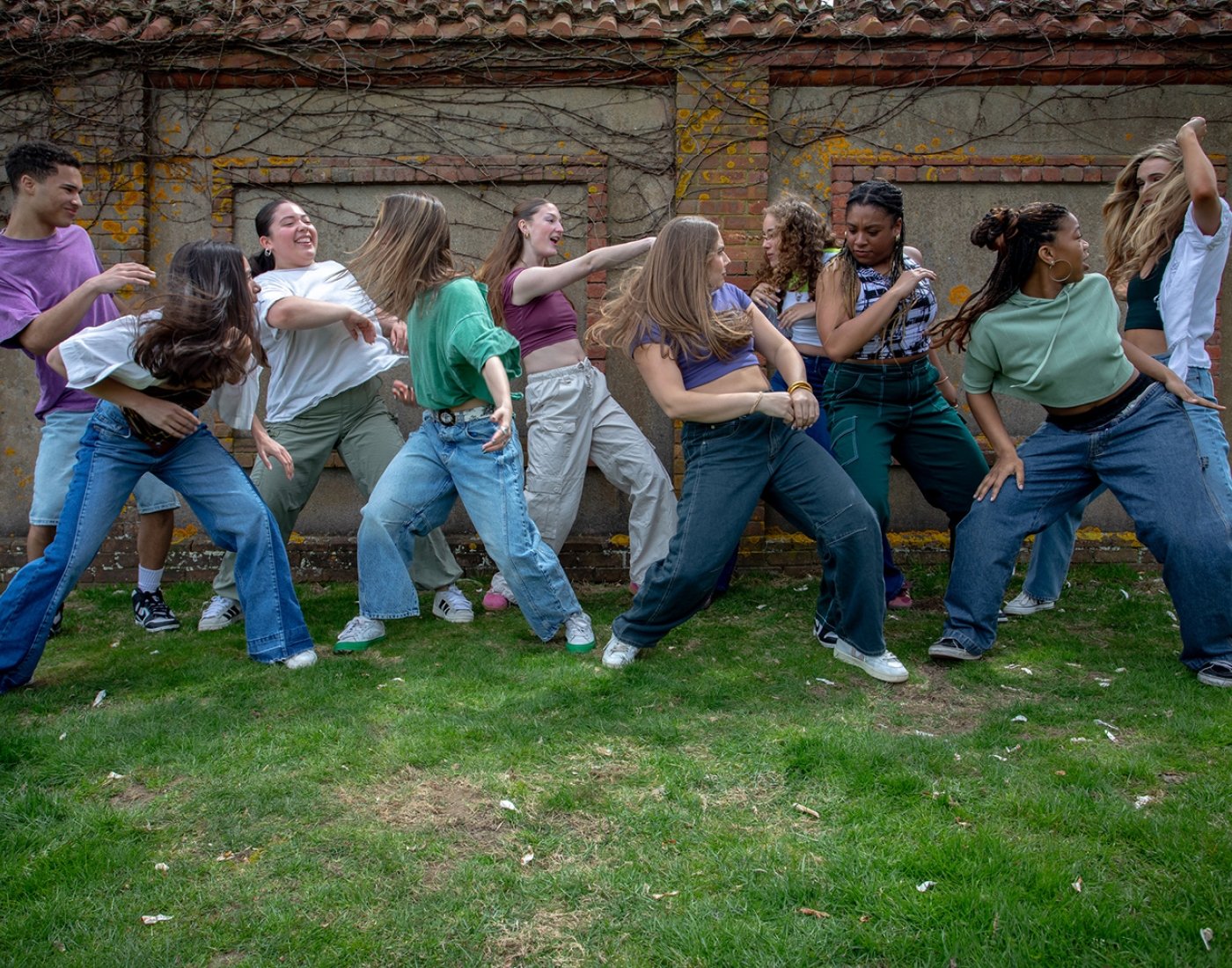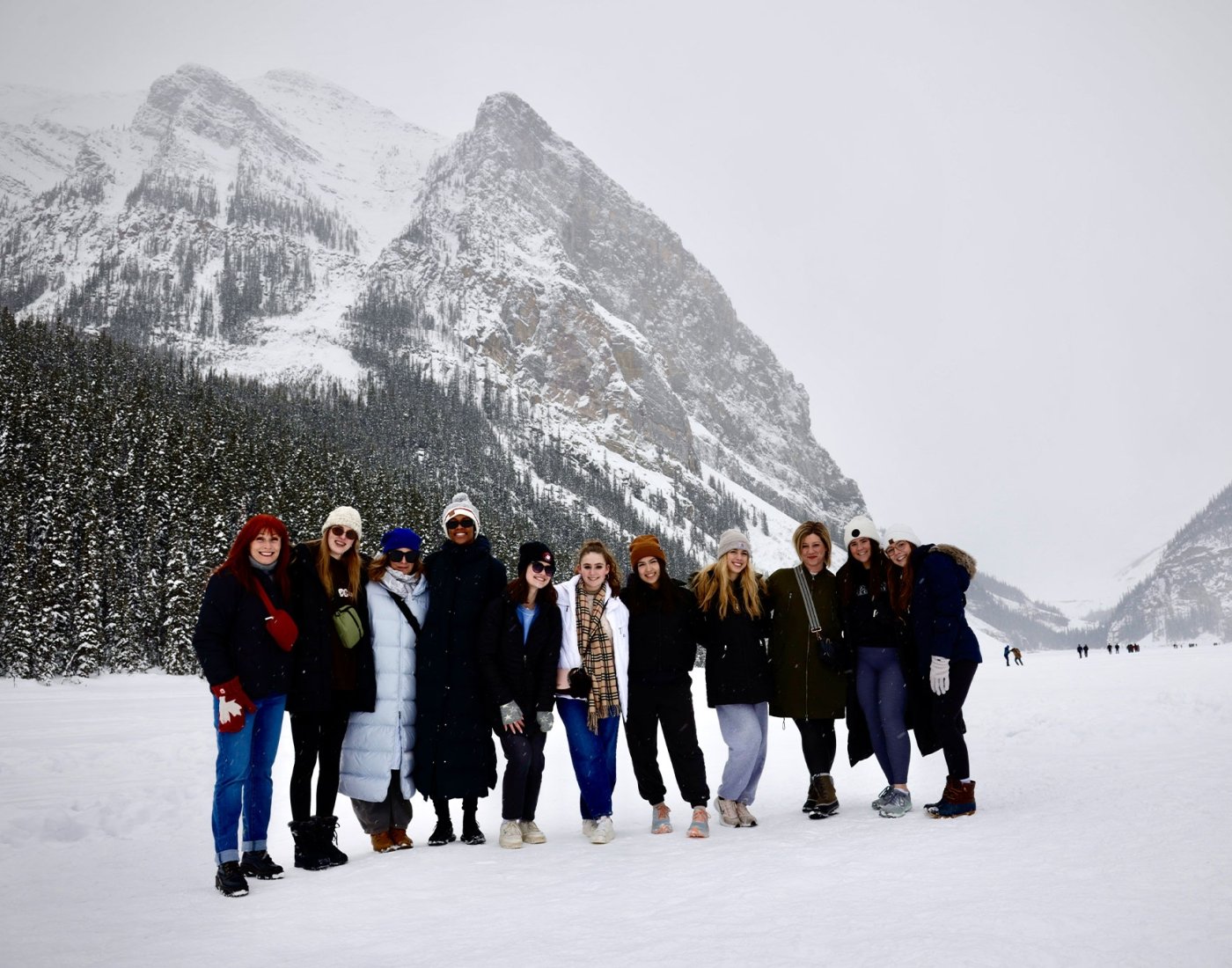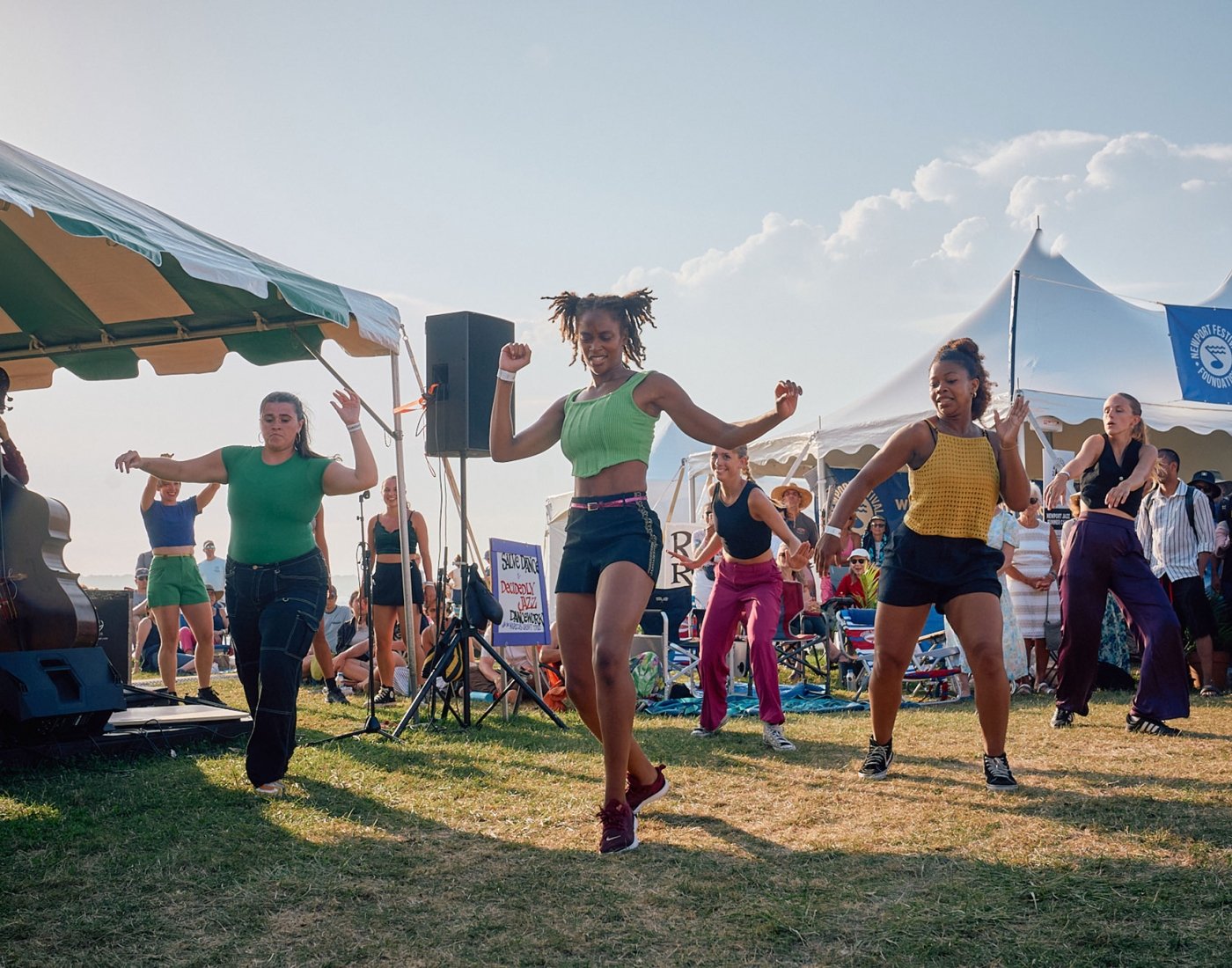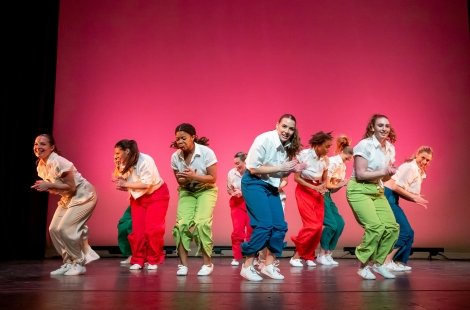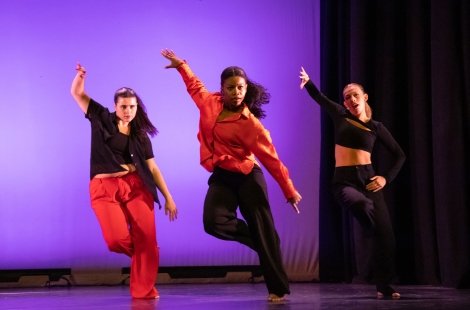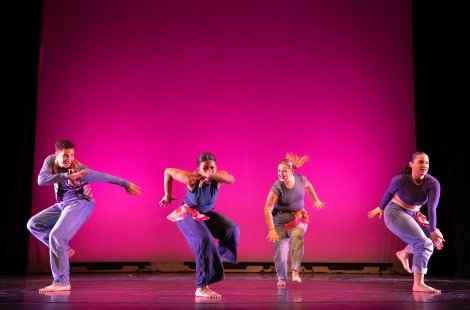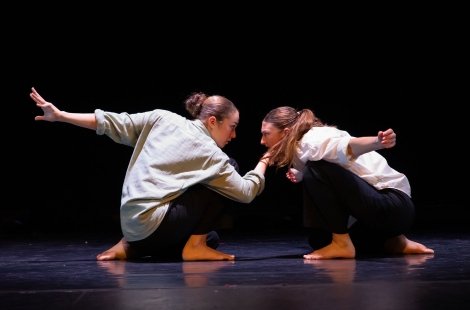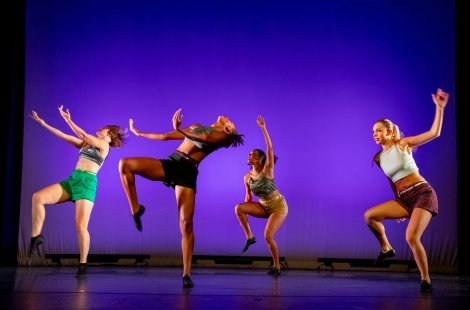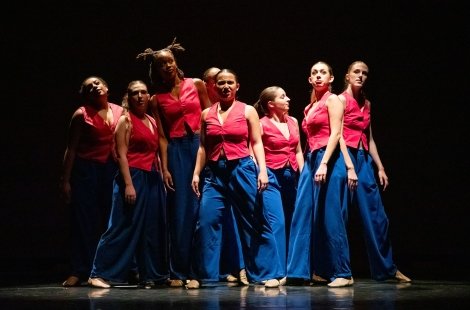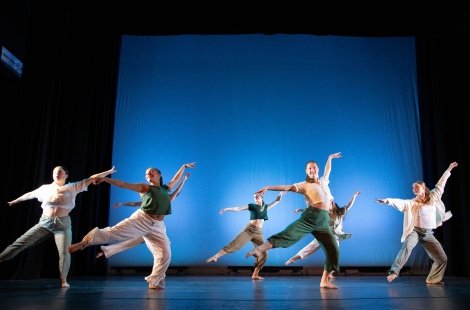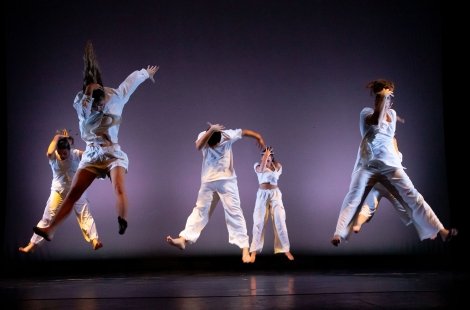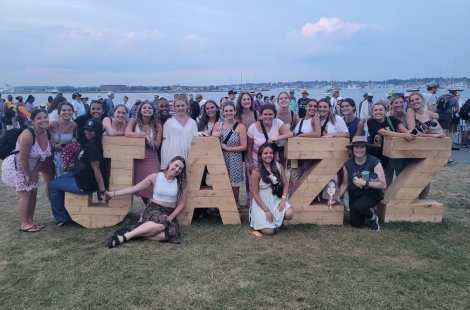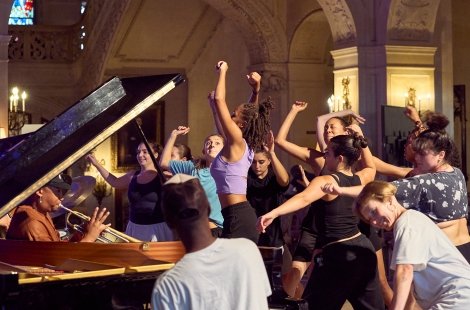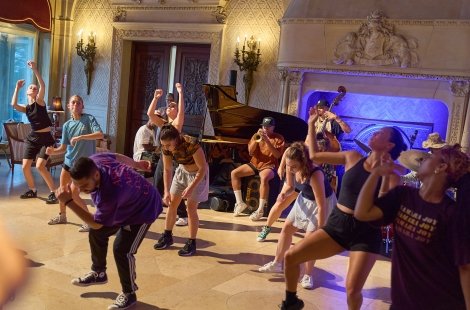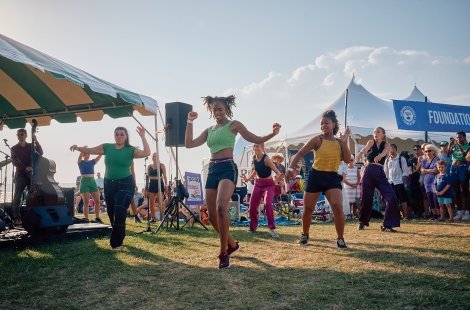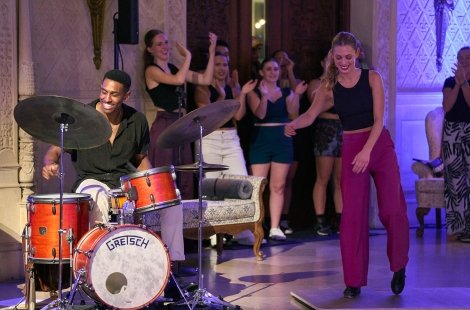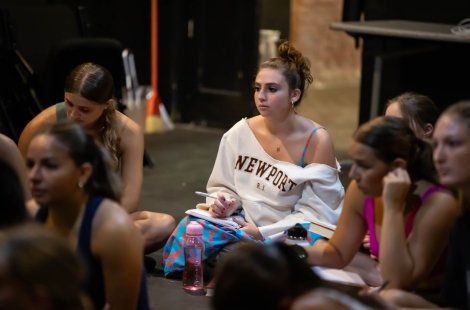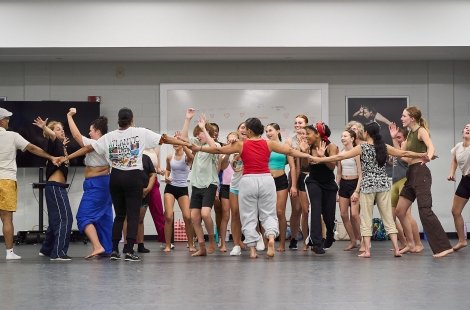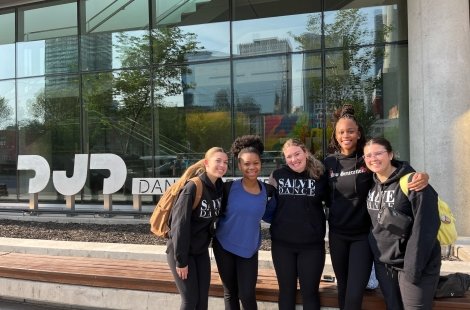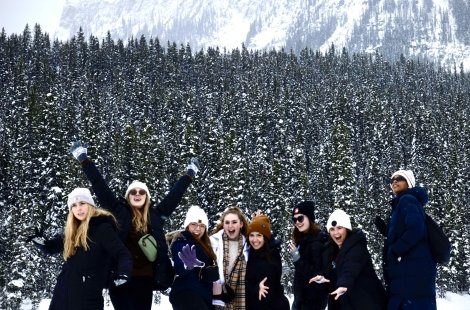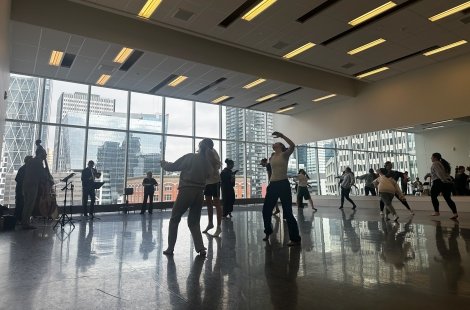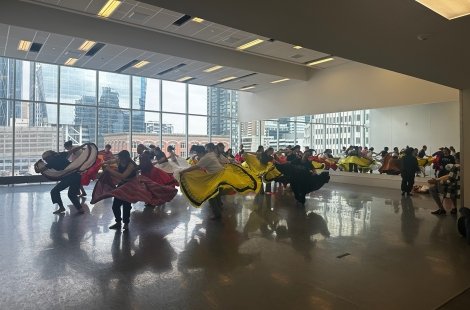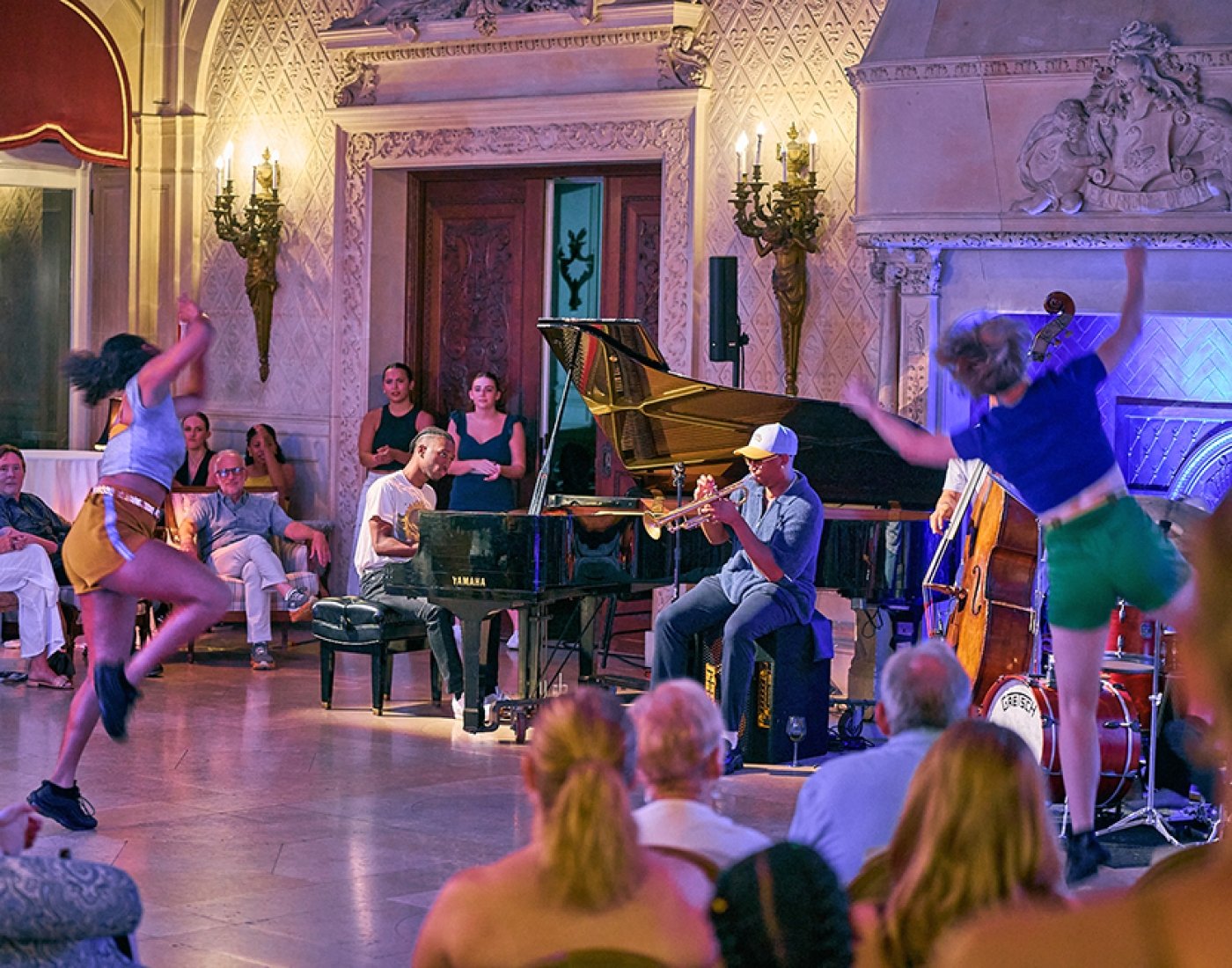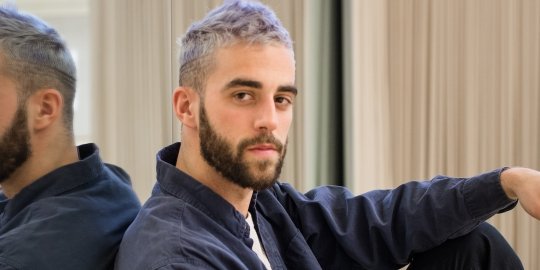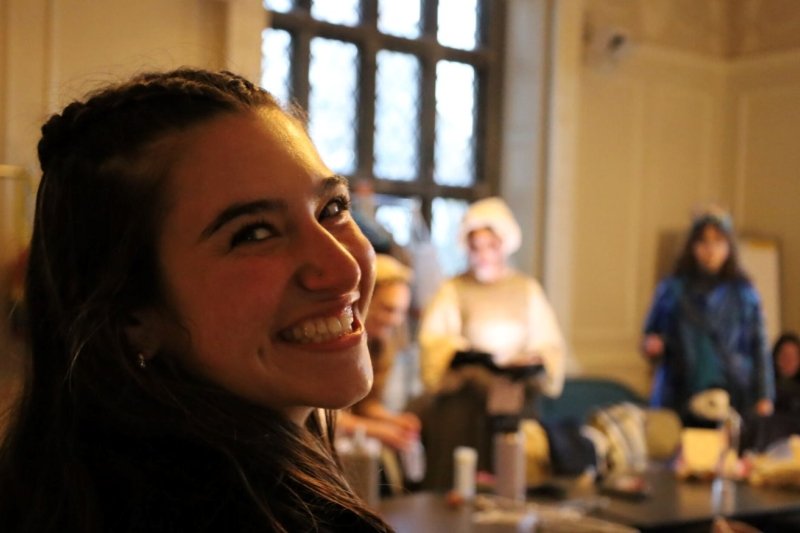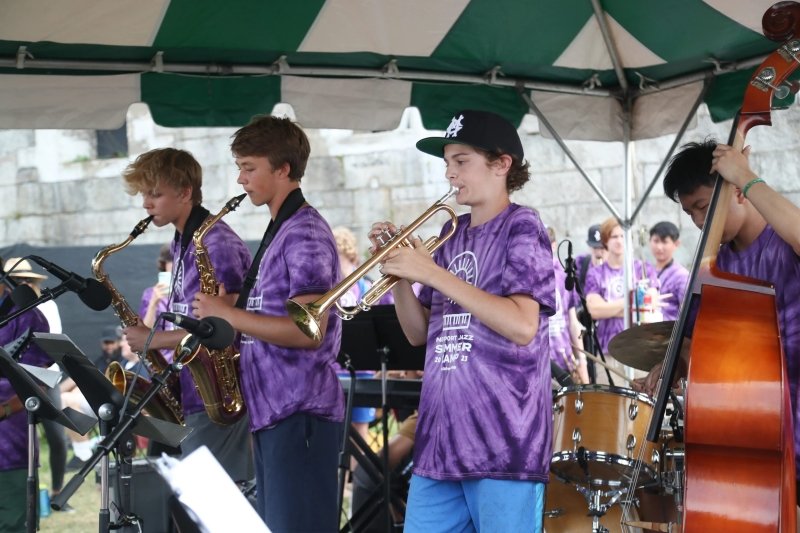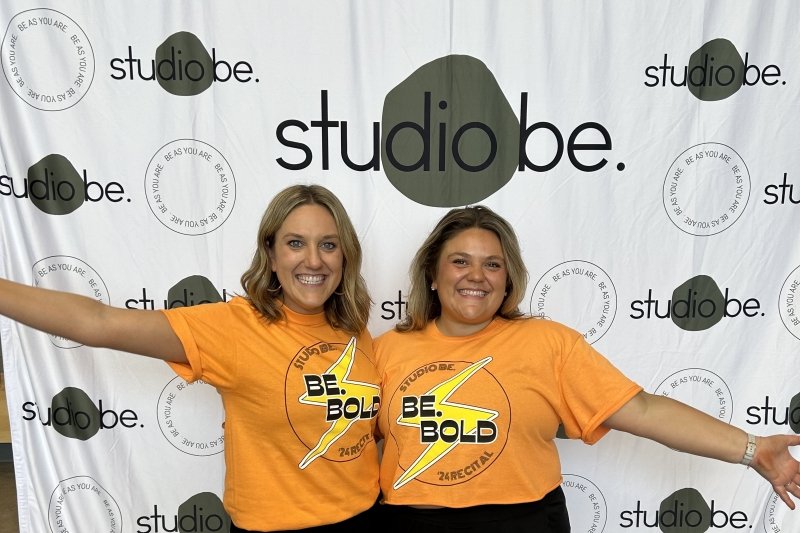Dance Major
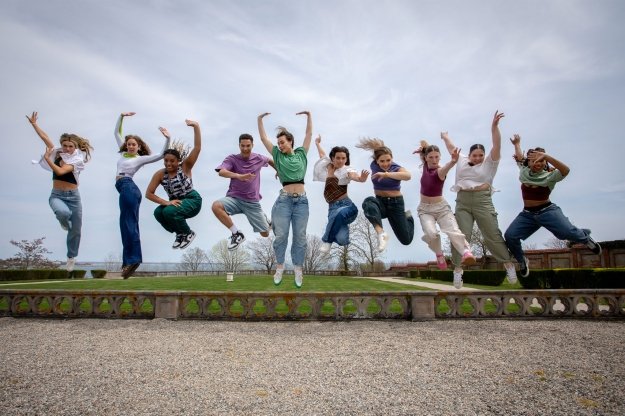
Salve Regina University's dance program provides a transformative education through the study of dance in a liberal arts setting. Community is at the heart of our program, which encourages individuality, creativity, dynamic exchanges of energy, risk-taking and resilience.
There is something special about Salve Dance that cannot be put into words. You constantly have the unwavering support and love of people who truly want the best for you and want to see you succeed. There are so many amazing opportunities to take advantage of, including performing, choreographing, and traveling to other dance companies who hold similar values.
Ava Siconolfi '24, dance and psychology major
Nurture Your Strengths and Interests
Students engage in critical dialogue, physical practice and creative production as they study dance history, theory, technique, performance, composition and teaching. Courses highlight the ability of dance to inspire connections across disciplines, enabling each student to carve out an individual career path for success.
The artistic voice you develop here will be informed by a range of dance styles, from contemporary to ballet, tap, hip hop, social dance, commercial dance and more.
In the dance program, we learn how to be extremely open-minded as well as resilient. There are a lot of different views on dance and people put emphasis on different styles, but ultimately, we learn about them all and are tasked with bringing our own perspective into the studios.
Mackenzie Robichaud '24, dance and psychology major
Work With Top Artists
In our preprofessional company, students work with 8-10 guest artists a year. Past choreographers include Naila Ansari, Rich Ashworth, Joshua Blake Carter, Alicia-Lynn Nascimento Castro, Ingrid Diaz Cespedes, Brandi Coleman, Kimberley Cooper/Decidedly Jazz Danceworks, Mike Esperanza, Melanie George/Jazz Is…Dance Project, Betsi Graves/Urbanity Dance, Monique Haley, Duane Lee Holland, Carlos R. A. Jones, Lisa La Touche, Kat Pantos/Pantos Project, Nailah Randall-Bellinger, Alvon Reed, Ashley Rich Omisore, Pat Taylor/JazzAntiqua Dance & Music Ensemble and Maurice Watson.
A Unique Focus on Jazz Studies
Our program dives deep into the art, acknowledging and honoring jazz as a historically Black American form that has influenced the continuum of American dance and culture. Students train in rooted jazz styles, learn the history and work with jazz musicians in studio classes and performance.
Study Abroad
Salve offers 200+ study abroad programs in 45 countries, including Jazz Dance in Calgary at Decidedly Jazz Danceworks every spring. There, in state-of-the-art facilities, students train with expert teachers in West African, Afro-Cuban and jazz classes with live music accompaniment, learn how the how business works and tour Banff National Park and downtown Calgary.
Experience Summer Jazz Dance in Newport
Through the Salve Compass program, dance majors can attend a no-cost week-long summer session in which they explore their identities as jazz artists and activists, working with established guest artists in studio classes, choreography and community dialogue and attending the world renowned Newport Jazz Festival.
Galleries
So Many Opportunities
“We want all our students to be transformed by an education at Salve Dance. A top priority is keeping our class cohorts small enough that all students have access to opportunities. Our dance majors work with top guest artists in the field, have the support to present their choreography at Salve and in festivals around the country, attend conferences, and have unique performance opportunities that they won’t experience anywhere else.” - Lindsay Guarino, professor and chair, Department of Music, Theatre and Dance
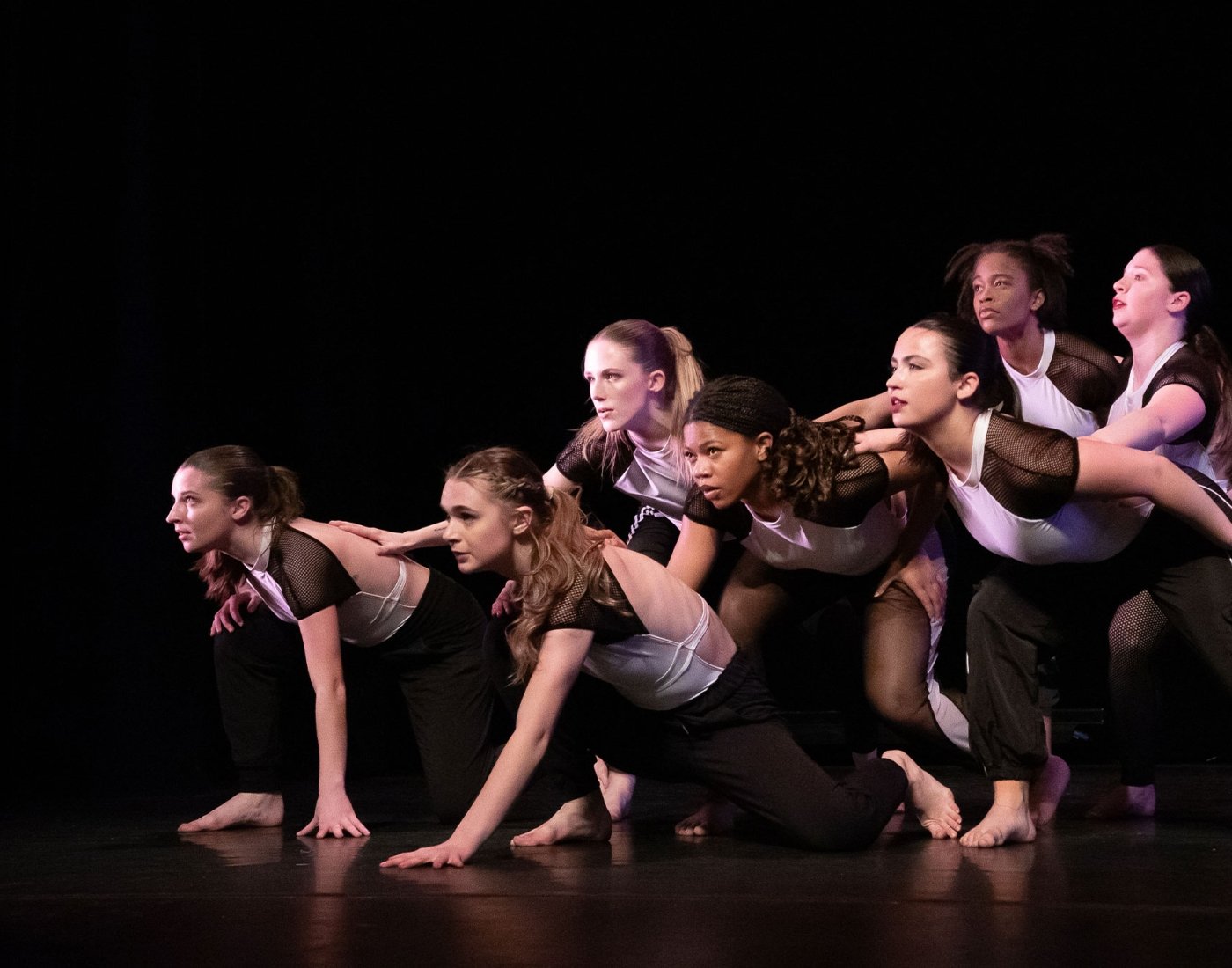
Explore Your Potential as a Creative Performer
In our preprofessional company, students can perform works by guest artists at our historic Casino Theatre, with world-renowned musicians in our one-of-a-kind Jazz Lounge, on the grounds of the historic Newport Jazz Festival and more.
Present Your Choreographed Works
Student choreographers can present their works on campus supported by close mentorship from dance faculty and influential dance-makers. Many have been invited to present at festivals including WAXworks, Jazz Choreography Enterprises Jazz Dance Project, Small Plates Choreography Festival, Upsurge Dance Festival, Boston Contemporary Jazz Festival, Southern Vermont Jazz Festival and more.
"Elapsed" by dance major Julia Paulo
Career Paths in Dance
Beyond fueling students’ passion with formal training, performance opportunities and structured exposure to many facets of the art form, we develop well-rounded graduates prepared to excel in the workforce, in career paths like these:
- Performance
- Choreography
- Dance educator (studios, K-12, higher education, community organizations)
- Business owner (private sector, nonprofit)
- Arts administrator (marketing, communication, company management, dance school management, development, social media coordinator)
- Producer/stage manager/theater manager/designer
- Dance therapy
- Arts advocacy
- Dance writing/publishing/journalism
- Physical therapy
- Event planning
- Public relations and marketing
Alumni Making Waves
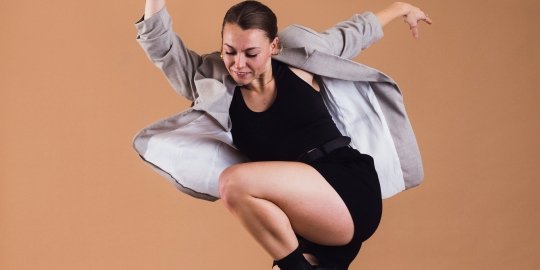
Haley Andrews '18
Dancer, choreographer and educator
Haley Andrews' works have been featured in the BandChicago Dance Festival, Hubbard Street Dance, Versatility Dance Fest, MashUp Dance's International Women's Day Festival and R.I. Women's Choreography Project. A freelance artist, Andrews danced with the company T2 Dance in Boulder, Colorado and now performs with artists throughout New England. She founded her own dance company, Andrews Movement, focused on creating queer art on queer bodies. An in-demand educator, she teaches classes at Urbanity Dance, AS220 and Metamorphosis. Andrews is an adjunct professor at Salve, where she teaches contemporary and sets work. This fall, she will pursue an MFA at the Trinity Laban Conservatory in London.
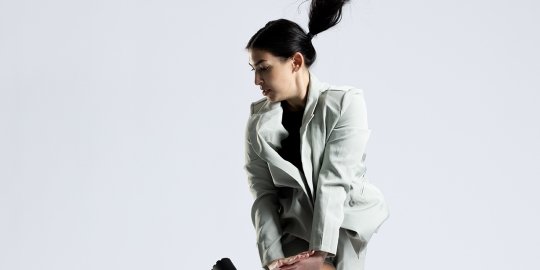
Cayley Christoforou '15
Marketing director, Urbanity Dance
In addition to overseeing marketing at Urbanity Dance, choreographing for their performances and serving as an instructor there, Cayley Christoforou is also a choreographer for the dance programs at Salve and Providence College and teaches at dance studios throughout New England. Her choreography has been presented at the Boston Contemporary Dance Festival, Salem Arts Festival and Southern Vermont Dance Festival, and was selected as the faculty piece to represent Providence College at the American College Dance Association. She has been featured in Dance Studio Life magazine.
Marissa Masson '19
Administrative manager and co-director, adult ensemble, Pantos Project Dance
Marissa Masson creates works for the adult ensemble at Pantos, as well as for Salve and Providence College. She has presented works at the Boston Contemporary Dance Festival, WAXworks, Southern Vermont Dance Festival, BDTx and the American College Dance Festival. Masson teaches and choreographs at dance studios throughout New England. She is also the Group X coordinator and personal trainer at Best Fitness.
Casey Sheehan '14
Choreographer, creative and dancer, New York, NY
After graduation, Casey Sheehan moved to New York and signed with an agency. He booked jobs quickly, from amusement parks to Vegas residencies. Eventually, he was hired as a backup dancer for Lady Gaga, where he worked closely with her and her team, including her Enigma residency in Las Vegas. The opportunity led to Sheehan working in film and TV, including appearing on Saturday Night Live and RuPaul’s Drag Race. He has worked with Alicia Keys, Gwen Stefani, Christina Aguilera and Sabrina Carpenter, and toured the globe with Kim Petras.
Degree Options
Bachelor of Arts in dance
In our dance program, students engage in critical dialogue, physical practice and creative production as they study dance history, theory, technique, performance, composition and teaching. We cover a range of dance styles, with a unique focus on jazz studies.
Bachelor of Arts in dance, concentration in performance and choreography
Students interested in pursuing a career in performance and/or choreography should add this concentration that deepens their skills and experiences in those areas, providing additional strategies and tools for success in the field. The concentration requires an audition for acceptance or permission of the program coordinator no sooner than second semester of the first year.
Minor in dance
The minor in dance enables students to investigate dance as a reflection of society and culture. You can study a variety of dance forms, with the flexibility to focus on your area of interest.
Meet Our Dance Faculty
Salve's dance faculty are performers, choreographers, scholars and most importantly, educators. Our goal is to create an environment where you can dream, take risks and explore your creative potential.
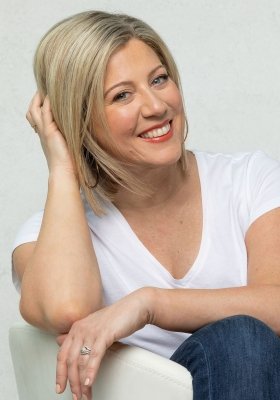
Lindsay Guarino
- Professor
- Chair, Music, Theatre and Dance
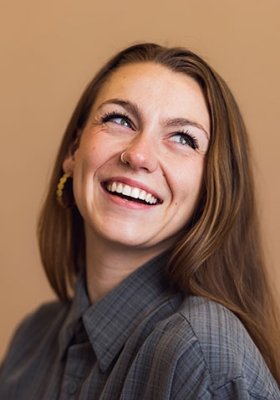
Haley Andrews
- Adjunct professor
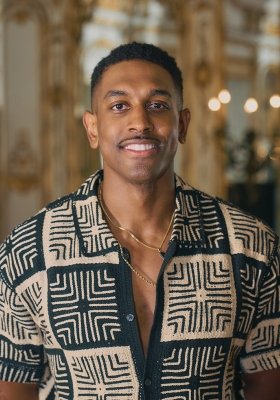
Marcus Grant
- Adjunct professor
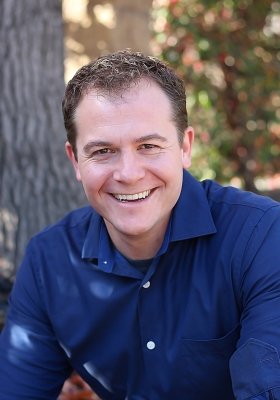
Mark Harootian
- Adjunct professor
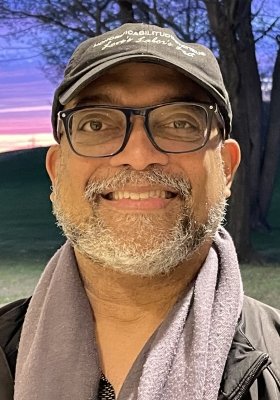
Carlos Jones
- Adjunct professor
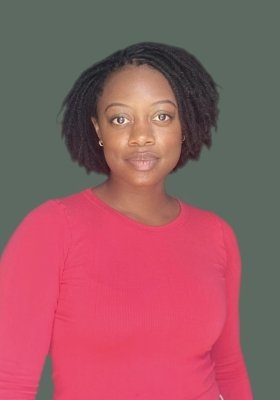
Candace Perry
- Artist in residence
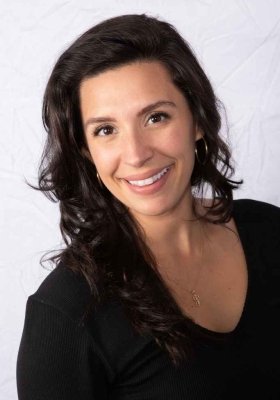
Amanda Ponte
- Adjunct professor
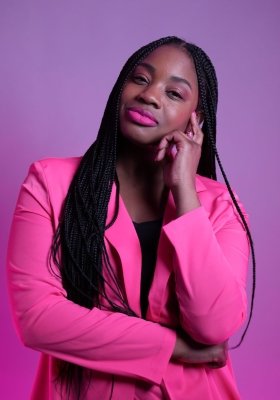
Ashley Rich
- Adjunct professor
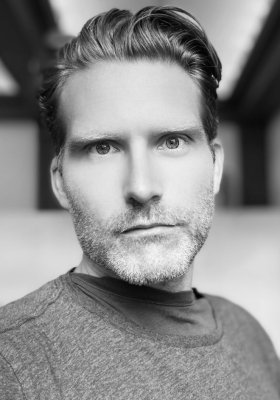
Colin Stilwell
- Adjunct professor
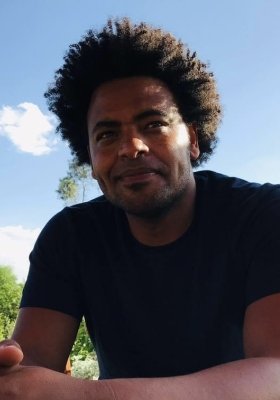
Mekbul Tahir
- Adjunct professor

